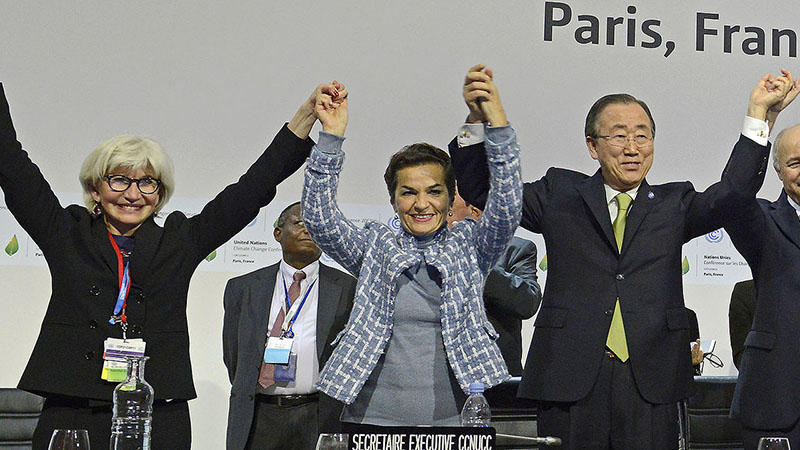Christiana Figueres did not deny plans to run for the UN top job when asked at an event in London on Tuesday.
The Costa Rican diplomat stressed that she is focused on leading the the UN climate body until her term finishes on 6 July, after six years, yet hinted at entering the secretary general race once the handover was complete.
“Nothing that requires world attention can be done without business,” she said, speaking to journalists at the Business and Climate Summit.
“You do need to open up the tent and you do need to encourage collaboration. That is a lesson learned, no matter who is in New York.”
On Friday, US agency Climate Wire reported “multiple sources” had confirmed Figueres intended to pitch for the post.
Christiana Figueres: Protecting the vulnerable is my priority
To date, 11 people have thrown their hats into the ring. These include UN development chief Helen Clark and eight candidates from Eastern Europe, which is due to take the next turn in an informal system of regional representation.
The UN says it is looking for “proven leadership and managerial abilities, extensive experience in international relations, and strong diplomatic, communication and multilingual skills”.
Delegates at the conference were supportive of a Figueres bid, following her key role in securing December’s Paris climate agreement.
“She has got all the job needs,” said Netherlands climate envoy Michel Rentenaar. “A very impressive woman. She mastered an extremely difficult portfolio, which basically involves the entire world.”
In an extended interview with Climate Home, Figueres said protecting the vulnerable was her priority. “It happens I chose climate as the battleground to work – but there are many other issues.”
A two-stage selection process is due to start by the end of next month. The UN Security Council will make a recommendation for a decision by the 193-member General Assembly.
The successful candidate will need the support of all five permanent members of the Security Council: China, France, Russia, the United Kingdom, and the United States. That means treading carefully around conflicts in the Ukraine, the South China Sea and Middle East.
Thomas Hale, global public policy expert at Oxford University, said Figueres had avoided controversy in these areas so far, but if pressed for iron clad guarantees might have difficulty.
“For a long time, the UN has been hobbled by a selection process that is based on the lowest common denominator,” he told Climate Home. “So it is inspiring for candidates that are known for something other than that to put their names forward. I hope she will succeed.”
